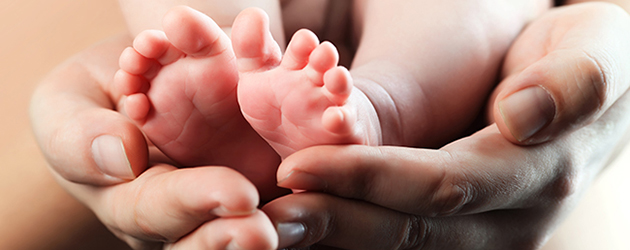Oxidative stress on sperm DNA caused by free radicals can be detrimental when trying to conceive. Vitamin C can help to reduce this oxidative stress and promote better fertility in both women and men.
Ascorbic acid, commonly referred to as vitamin C, is a vital nutrient for a healthy body. Involved in an array of enzymatic reactions, a deficiency can cause many health problems.
Essential for immune function, vitamin C is also important for fertility. Both men and women need sufficient vitamin C to support reproduction.
Clinical Study: How does vitamin C support male fertility
The semen plasma of the ejaculate typically has a high level of vitamin C. Ascorbic acid is needed to protect vulnerable sperm from oxidative stress.
www.amitamin.com/en/fertilsan-m New life deserves the best possible start!We provide the essential building blocks for this.
This antioxidant neutralises free radical activity and keeps the developing and mature sperm healthy.
A recent study demonstrated the importance of vitamin C on negating factors that contribute to infertility. Colagar and Marzony assessed the ascorbic acid concentrations in seminal plasma of fertile and infertile men[1]“Colagar, A. and Marzony, E. (2009). <em>Ascorbic Acid in Human Seminal Plasma: Determination and Its Relationship to Sperm Quality</em>. Journal of Clinical Biochemistry and Nutrition, … Continue reading.
The purpose was to establish the relationship vitamin C has with sperm motility, count and morphology. Samples of semen from 46 fertile men (25 smokers and 21 non-smokers) and 55 infertile men (23 smokers and 32 non-smokers) were analysed.

Results
The study found that
- Fertile participants had significantly higher seminal plasma ascorbic acid concentrations compared with infertile participants. These results applied to both smokers and non-smokers.
- Non-smokers had higher concentrations of ascorbic acid in their seminal plasma compared with smokers.
- Seminal ascorbic acid decreased significantly in infertile participants.
- Seminal ascorbic acid concentrations in infertile and fertile participants correlated with the percentage of normal spermatozoa morphology.
Up to 65% of free radical scavenging activity within the seminal plasma is performed by ascorbic acid[2]“Agarwal, A. <em>et.al</em>. (2004). <em>Role of antioxidants in treatment of male infertility</em>. Reproductive Biomedicine Online, Volume 8, Issue 6, (pp. 616-27).”. Protecting developing sperm and boosting fertility therefore relies on a healthy intake of vitamin C.
Insufficient concentrations of ascorbic acid can contribute to reduced sperm count, motility, and more morphological abnormalities. This can adversely affect male fertility.
Clinical Study: How does vitamin C support female fertility during assisted fertility treatment
The strong antioxidant capacity of ascorbic acid is also important for female fertility. Oxidative stress is believed to be an important mediator of conception and may influence the timing and development of a healthy pregnancy[3]“Ruder, E. et.al (2008). Oxidative stress and antioxidants: exposure and impact on female fertility. Human Reproduction Update, Volume 14, Issue 4, (pp. 345-57).”. Reducing oxidative stress by maintaining healthy levels of ascorbic acid may therefore improve female fertility.
A clinical study has shown that vitamin C can help to assist women undergoing assisted fertility treatments[4]“Crha, I. <em>et.al.</em> (2003). <em>Ascorbic acid and infertility treatment</em>. Central European Journal of Public Health, Volume 11, Issue 2, (pp. 63-7).”. The aim of the research was to determine the influence ascorbic acid supplementation has on women receiving IVF/ET procedures. A total of 76 women participated in the research. This included 38 smokers and 38 non-smokers. Half (19 smokers and 19 non-smokers) took 500 mg of vitamin C daily. The remaining participants acted as the control.
Results
The study found that
- Women in the control group had significantly lower ascorbic acid levels in the follicles compared with women receiving vitamin C supplementation (5.04 +/- 2.85 mg/l vs. 8.98 +/- 5.09).
- Vitamin C supplementation has a stronger impact in non-smokers. Non-smoker pregnancy rate was much higher (44.7% vs. 13.2%).
This research highlights the importance of ascorbic acid in female fertility. It also reiterates the negative impact smoking can have on fertility and conception.
Good vitamin C sources
The best sources of ascorbic acid are fruits and vegetables. Some foods particularly rich in vitamin C include strawberries, guava, citrus, kiwi, peppers, tomatoes, peas, broccoli, leafy greens and papaya.
Summary
The powerful antioxidant activity of ascorbic acid makes this nutrient important for both male and female fertility. Vitamin C can help to reduce oxidative stress and improve conception rates.
Using Vitamin C to boost sperm morphology and DNA protection

Vitamin C is a powerful male fertility enhancing nutrient, but it is also just one of several so called fertility-neutraceuticals. Clinical research studies have consistently shown that
We have therefore compared all of the top male fertility combination supplements in a transparent, side-by-side evaluation.
VIDEO: How to improve sperm naturally with food
Sperm morphology-enhancing male fertility nutrients
Bibliography

Dr. Kooner is Deputy Director of The Advanced Fertility Center of Chicago and has been a Specialist in Fertility Treatment since 1999.
As well as the areas that the clinic specialises in general, he is particularly interested in managing oocyte donation, female same-sex couples, single women having sperm donation and those considering egg freezing.
Dr. Kooner regularly speaks at fertility meetings. He has published in national journals and constantly contributes to the fertility research and publications from Advanced Fertility Center of Chicago.
References
| ↑1 | “Colagar, A. and Marzony, E. (2009). <em>Ascorbic Acid in Human Seminal Plasma: Determination and Its Relationship to Sperm Quality</em>. Journal of Clinical Biochemistry and Nutrition, Volume 45, Issue 2, (pp. 144-49).” |
|---|---|
| ↑2 | “Agarwal, A. <em>et.al</em>. (2004). <em>Role of antioxidants in treatment of male infertility</em>. Reproductive Biomedicine Online, Volume 8, Issue 6, (pp. 616-27).” |
| ↑3 | “Ruder, E. et.al (2008). Oxidative stress and antioxidants: exposure and impact on female fertility. Human Reproduction Update, Volume 14, Issue 4, (pp. 345-57).” |
| ↑4 | “Crha, I. <em>et.al.</em> (2003). <em>Ascorbic acid and infertility treatment</em>. Central European Journal of Public Health, Volume 11, Issue 2, (pp. 63-7).” |
| ↑5 | ”https://humupd.oxfordjournals.org/content/14/3/243.full” |
| ↑6 | ”Imhof, Martin et al., “Improvement of sperm quality after micronutritient supplementation” |








